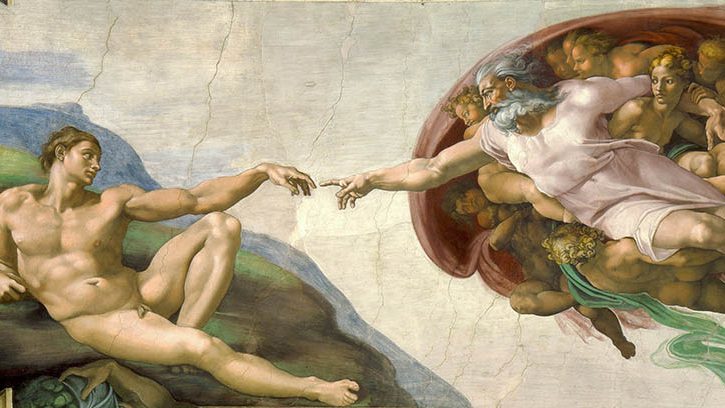Once upon a time there was a piece of music that captivated imaginations like nothing before or since.
It was written by Gregorio Allegri and titled “Miserere mei, Deus,” or “Miserere” for short.
I invite you to listen while you read:
If I was a Catholic who shared this music with you a few hundred years ago I’d be in deep trouble.
I would be excommunicated from the church.
It’s difficult today to fully comprehend what that might have meant to someone at the time.
For one, it meant that you were sentenced to eternal damnation. It also meant that no Catholic could talk to you, provide you a home or feed you.
On hearing “Miserere” for the first time in the 1630s, Pope Urban VIII declared the piece so beautiful that it was not to be heard outside the walls of the Sistine Chapel.
And so it was for about 150 years; only performed at the Sistine Chapel in the Vatican and only on Holy Wednesday and Good Friday.

The Chapel itself was inextricable from the experience of the music. It was a sacred space built by Renaissance masters with dimensions taken straight from the Old Testament to match those of the Temple of Solomon and 5,600 square feet of ceiling painted by Michelangelo di Lodovico Buonarroti Simoni.
Without having seen the Sistine Chapel one can form no appreciable idea of what one man is capable of achieving.
Johann Wolfgang Goethe
The lyrics of Miserere, based on Psalm 51, are a dramatic confession of sin and a desperate plea for God’s mercy.
It’s performance was part of a sacred ritual commemorating the death of Christ.
The service began at 3AM. 27 candles were extinguished one at a time, leaving one to remain burning. At this moment, the Pope would kneel at the alter and pray as the choir began singing.
To be one of a select few to hear this legendary piece in the presence of the Pope, on the holiest week, in the holiest of venues, by the renowned Papal Choir, must have been a breathtaking experience.

Then one day, on Holy Wednesday in 1770, a 14 year old boy named Wolfgang Amadeus Mozart entered the chapel. On hearing the 12 minute piece he committed it to memory and transcribed it. Two days later he returned to hear the piece again.
That was it.
Wolfgang’s father, Leopold wrote to his wife:
You have often heard of the famous Miserere in Rome, which is so greatly prized that the performers are forbidden on pain of excommunication to take away a single part of it, copy it or to give it to anyone. But we have it already. Wolfgang has written it down…
Mozart had stolen fire from the Gods.
The experience of the music was forever decoupled from the drama, awe and mystery for which it was known for 150 years. It could now be performed outside the Vatican.
News traveled quickly and Mozart’s fame grew.
Pope Clement XIV, resigned to the inevitable, spared Mozart excommunication and awarded him a papal knighthood.
Over the years, the chapel has cracked and leaked. New buttresses have been built to support the walls and the gangway has been roofed. New buildings have gone up around it and it’s undergone numerous restorations.
Time marches on.
A question that might be worth asking more than once: What was gained and what was lost when Mozart walked out of the chapel on April 13th, 1770?
-> Are you a musician who thinks outside the box? Join us in the Facebook Group <-

















